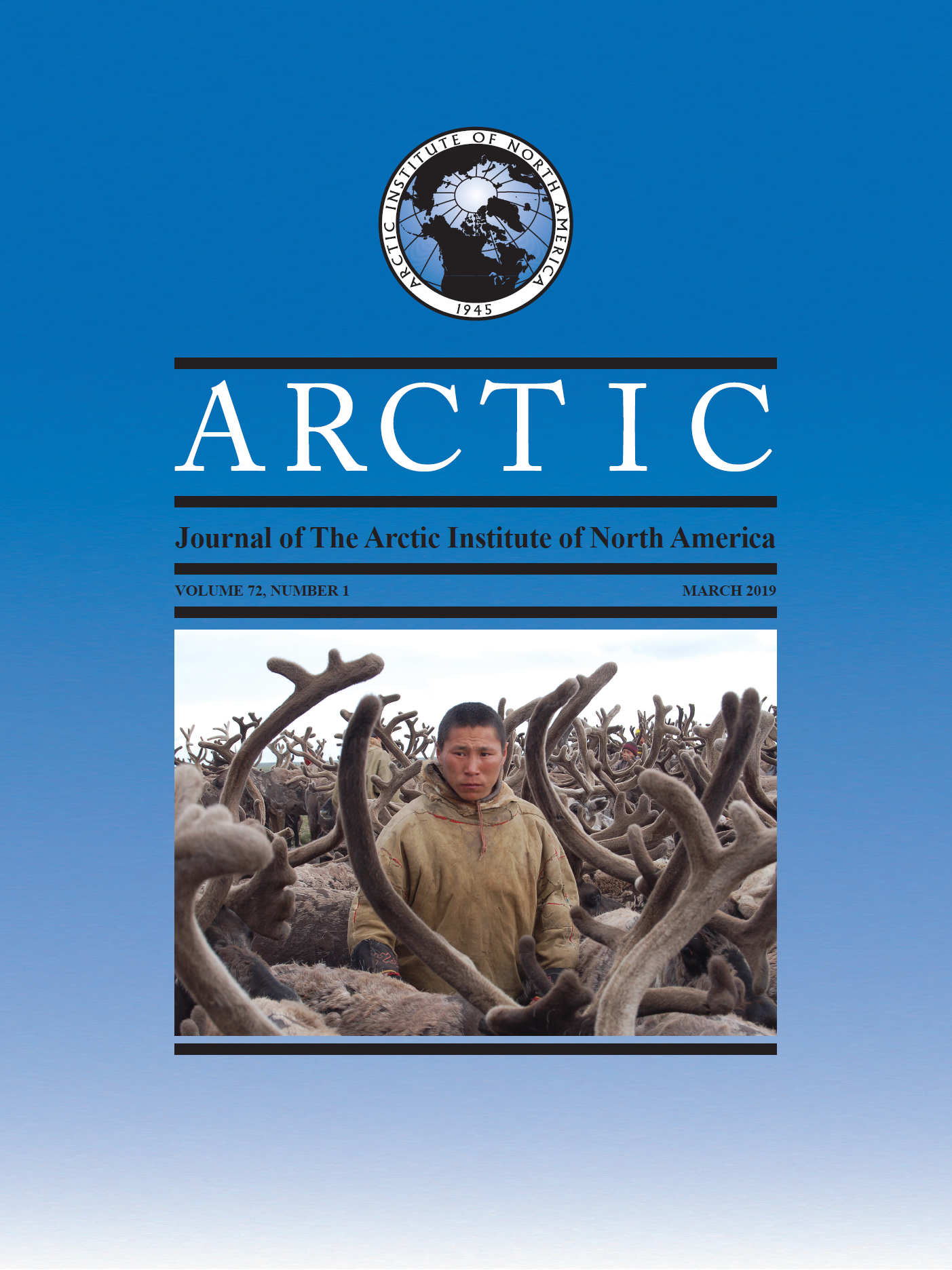Knowledge Co-production in Contested Spaces: An Evaluation of the North Slope Borough – Shell Baseline Studies Program
DOI:
https://doi.org/10.14430/arctic67804Keywords:
Alaska, Arctic, boundary organizations, contested spaces, knowledge co-production, North Slope, oil and gas development, rural and Indigenous, science policyAbstract
Supporting the development of trusted and usable science remains a key challenge in contested spaces. This paper evaluates a collaborative research agreement between the North Slope Borough of Alaska and Shell Exploration and Production Company—an agreement that was designed to improve collection of information and management of issues associated with the potential impacts of oil and gas development in the Arctic. The evaluation is based on six categories of knowledge co-production indicators: external factors, inputs, processes, outputs, outcomes, and impacts. Two sources of data were used to assess the indicators: interviews with steering committee members and external science managers (n = 16) and a review of steering committee minutes. Interpretation of the output and outcome indicators suggests that the Baseline Studies Program supported a broad range of research, though there were differences in how groups perceived the relevance and legitimacy of project outcomes. Several input, process, and external variables enabled the co-production of trusted science in an emergent boundary organization and contested space; these variables included governance arrangements, leveraged capacities, and the inclusion of traditional knowledge. Challenges to knowledge co-production on the North Slope include logistics, differences in cultures and decision contexts, and balancing trade-offs among perceived credibility, legitimacy, and relevance. Reinforced lessons learned included providing time to foster trust, developing adaptive governance approaches, and building capacity among scientists to translate community concerns into research questions.


